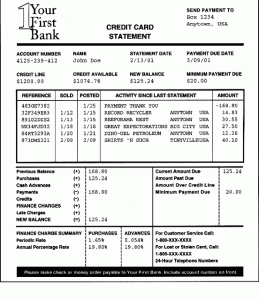The AP had great news about credit card debt today:
Consumer borrowing increased in September for the first time since January even though the category that includes credit cards dropped for a record 25th straight month. The rise in credit came from the category that includes student loans.

It looks like more and more households are paying off credit card debt. In fact, according to data released today, credit card debt has declined for the 25th straight month in the United States.
That means that consumer debt rose a bit because more people were going back to college but credit card debt has declined for 25 straight months. That means for more than two years, consumers have been slashing their credit card balances by paying off everything they can and reducing their risk. Of course, some of those reductions were due to bankruptcy filings but not as much as one might expect due to the bankruptcy reform, which made it much harder to discharge liabilities in court.
This is the sort of trend I was talking about when I said credit card debt isn’t a problem for most Americans. The data is pretty clear that a majority of American families either have no credit card at all or pay off their entire balance each month. If the Great Recession results in a de-leveraging of the average American household, I think that bodes well for our national economy in the future. The financial health of the country cannot be separated from the finances of each individual family. If most families are doing well, have little or no debt, and money in the bank, the United States will be strong. If most families are living paycheck to paycheck, paying 30% interest on credit cards, and taking out home equity loans to add a fourth bathroom with gold-plated faucets, then we are doomed for collapse.



